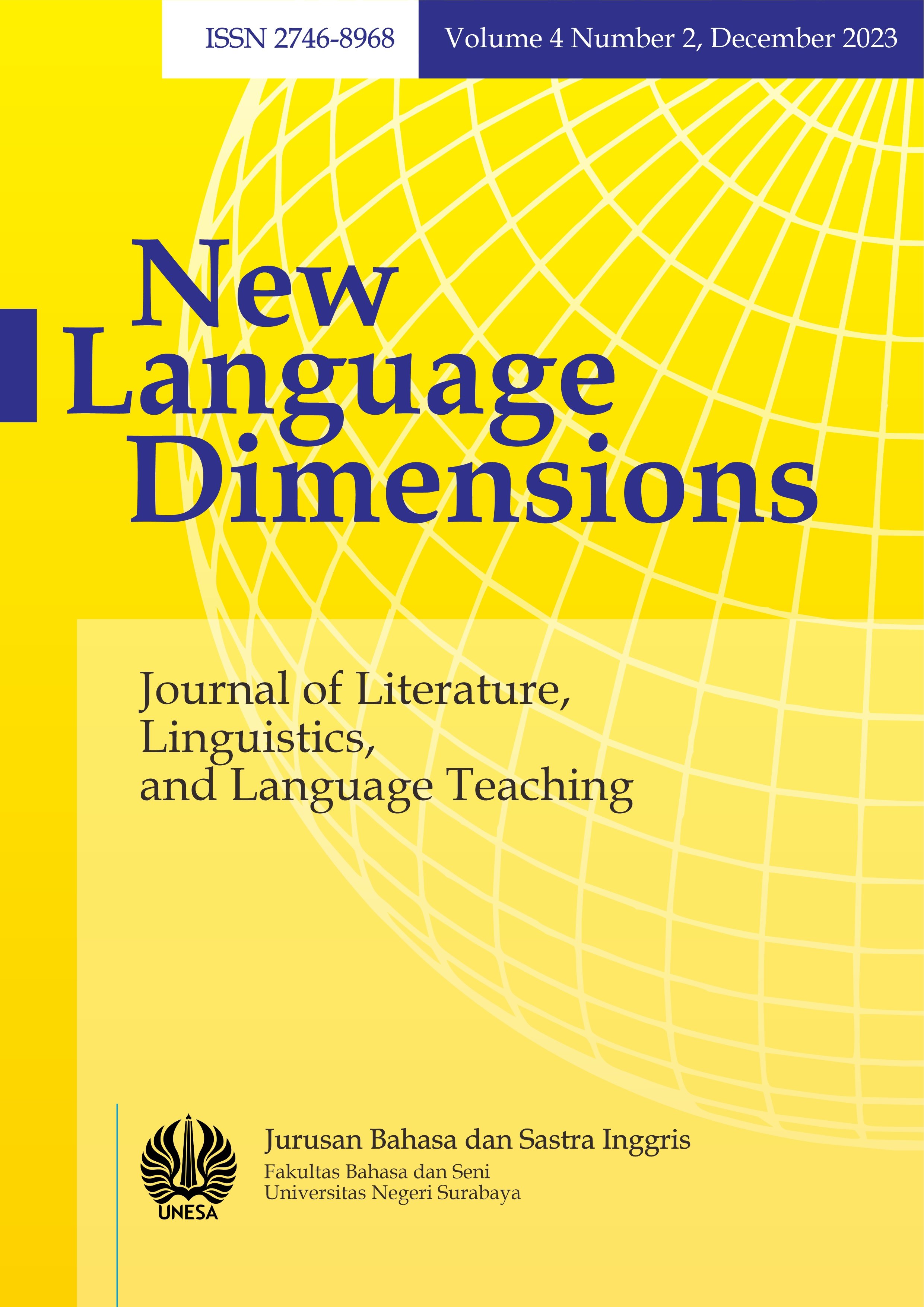EFL Junior High School Teachers’ Perceptions on Literacy Assessment
DOI:
https://doi.org/10.26740/nld.v4n2.p102-116Keywords:
National Assessment, Minimum Competency Assessment, CAC Model, Perception, Literacy AssessmentAbstract
The national examination was replaced with a national assessment because it was only focused on memorizing skills and assessed only the cognitive aspect. There is a need for research on how teachers perceive the minimum competency assessment, especially literacy competence that this research was conducted. As a result, this study is keen to gauge how junior high school students perceive English teachers in general. There are 3 components called the CAC model (cognitive-affective-conative) that influences a person's behavior so that it is also related to one's perception. The data processing technique in this study consisted of 3 stages, namely editing, coding and tabulating. The first stage was carried out to check the data obtained from the answers to the questionnaires that have been collected. Then, coding stage was carried out to code the respondents' answers in the form of giving numbers or other signs. Lastly, tabulation stage was carried out by compiling and calculating the coding results by giving a score and then presenting it in tabular form. The findings showed the perception of the English teachers about literacy assessment based on a minimum competency assessment in terms of cognitive aspects was fairly good, on the affective aspects was fairly good while on the conative aspects was good. Accordingly, researches on minimum competency assessment needs to be examined further that afford teachers’ comprehension in implementing minimum competency assessment.
Keywords: National Assessment, Minimum Competency Assessment, CAC Model, Perception, Literacy Assessment
Downloads
References
Baird, J. A., Andrich, D., Hopfenbeck, T., & Stobar, G. (2017). Assessment and Learning: Fields apart? Assessment in Education Principles Policy and Practice.
Chalice. (2020). Mata Pendidikan: Info Asesmen Nasional. Administrasi Pendidikan.
Gay. (2012). Educational Research: Competencies. Pearson Education, Inc.
Halik, A. (2019). Ini Alasan Mendikbud Nadiem Hapus Ujian Nasional 2021. Berita Satu. https://www.beritasatu.com/nasional/590122/ini-alasan-mendikbud-nadiem-hapus-ujian-nasional-2021
OECD. (2019). Assessment and Analytical Framework. http://www.oecd.org/education/pisa-2018-assesment-and-analytical-frameowrk-b25efab8-en.htm
Pusat Asesmen & Pembelajaran. (2020). AKM dan Implikasinya pada Pembelajaran. Badan Penelitian dan Pengembangan Pembukuan.
Robbins, S., & Judge, T. (2013). Organizational Behaviour (15th ed.). Pearson Education, Inc.
Wahyuni, S. (2018). CAC Model to Evaluate Teachers" Attitudes towards Technology Use in Their EFL Classrooms. LANGUAGE CIRCLE: Journal of Language and Literature, 13(1).
Walgito. (2010). Pengantar Psikologi Umum. CV. Andi.
Weng, F., & Shen, B. (2022). Language Assessment Literacy of Teachers. Frontiers in Psychology, 13(May). https://doi.org/10.3389/fpsyg.2022.864582
Downloads
Published
Issue
Section
 Abstract views: 303
,
Abstract views: 303
, PDF Downloads: 257
PDF Downloads: 257











